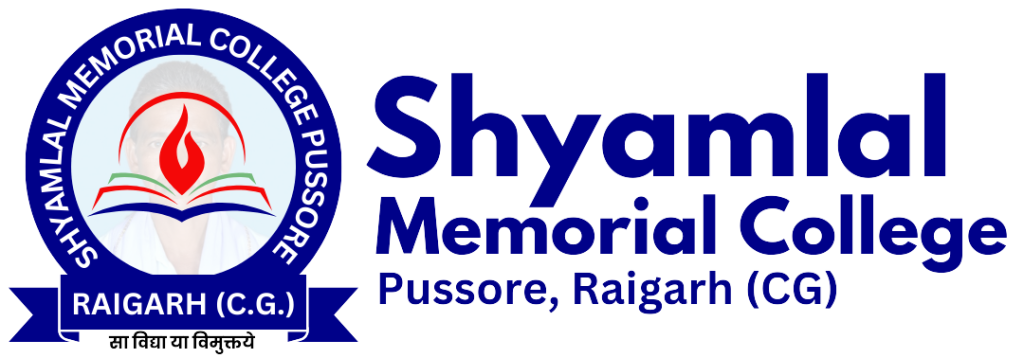Syllabus
The course syllabus at Shyamlal Memorial College is designed to provide a balanced approach to both theoretical knowledge and practical skills across various fields. Here is an overview of the syllabus for some of the major programs offered at the college:
Duration: 3 Years
Eligibility: 10+2 with Mathematics or Computer Science
Year 1:
- Fundamentals of Information Technology
- Programming in C
- Mathematics for Computing
- Digital Electronics
- Communication and Soft Skills
Year 2:
- Object-Oriented Programming with C++
- Data Structures and Algorithms
- Database Management Systems (DBMS)
- Operating Systems
- Web Technologies (HTML, CSS, JavaScript)
Year 3:
- Java Programming
- Software Engineering
- Computer Networks and Cybersecurity
- Artificial Intelligence and Machine Learning Basics
- Final Year Project: A comprehensive project showcasing practical application of knowledge.
Duration: 3 Years
Eligibility: 10+2 with Science stream (Mathematics as a subject)
Year 1:
- Mathematics Paper I: Differential Calculus and Integral Calculus
- Mathematics Paper II: Geometry (3D Geometry and Conic Sections)
- Mathematics Paper III: Algebra (Groups, Rings, and Vector Spaces)
- Physics and Chemistry (Optional): For students who opt for a science combination.
Year 2:
- Mathematics Paper I: Real Analysis
- Mathematics Paper II: Differential Equations (Ordinary and Partial)
- Mathematics Paper III: Linear Algebra and Matrices
- Physics and Chemistry (Optional): Continuation of elective subjects.
Year 3:
- Mathematics Paper I: Complex Analysis
- Mathematics Paper II: Numerical Methods and Mathematical Modeling
- Mathematics Paper III: Probability and Statistics
- Physics and Chemistry (Optional): Final year elective.
Practical/Project Work: Numerical analysis and computer-based problem-solving using tools like MATLAB or other mathematical software.
Duration: 3 Years
Eligibility: 10+2 in any stream
Core Subjects:
Students can choose from the following subjects as their core areas of focus. Each subject is studied across three years, progressing in complexity.
- Hindi Literature:
- Year 1: Ancient and Medieval Hindi Literature
- Year 2: Modern Hindi Prose and Poetry
- Year 3: Hindi Literary Criticism and Linguistics
- English Literature:
- Year 1: British Poetry and Drama
- Year 2: American Literature and Modern Fiction
- Year 3: Literary Criticism and Indian Writing in English
- Sanskrit:
- Year 1: Classical Sanskrit Literature
- Year 2: Vedic Literature and Sanskrit Grammar
- Year 3: Sanskrit Drama and Prose
- Sociology:
- Year 1: Introduction to Sociology and Social Institutions
- Year 2: Sociological Theories and Research Methods
- Year 3: Indian Society and Social Change
- Economics:
- Year 1: Microeconomics and Basic Economics
- Year 2: Macroeconomics and Public Finance
- Year 3: International Economics and Development Economics
- Geography:
- Year 1: Physical Geography and Climatology
- Year 2: Human Geography and Cartography
- Year 3: Environmental Geography and Geographic Information Systems (GIS)
- Political Science:
- Year 1: Indian Political Thought and Government
- Year 2: Comparative Politics and International Relations
- Year 3: Political Theory and Public Administration
Duration: 1 Year
Eligibility: Graduation in any discipline
Semester 1:
- Fundamentals of IT and Computer Organization
- Programming in C and C++
- Database Management Systems
- Operating Systems
Semester 2:
- Internet and Web Technologies
- Java Programming
- Software Engineering
- Data Communication and Networking
- Project Work: A practical software development or research project.
Duration: 1 Year
Eligibility: 10+2 in any discipline
Semester 1:
- Fundamentals of Computers
- MS Office (Word, Excel, PowerPoint)
- Basics of Internet and Networking
- C Programming
Semester 2:
- Database Management Systems (DBMS)
- Web Development Basics (HTML, CSS)
- Tally and Accounting Software
- Introduction to Python Programming
- Practical Training/Project Work
Examinations and Assessments:
- Each course has mid-term assessments, practical exams, and end-semester written examinations.
- Regular internal assessments through assignments, quizzes, and presentations.
- Practical subjects in courses like BCA, PGDCA, and DCA have hands-on lab sessions and project submissions.

